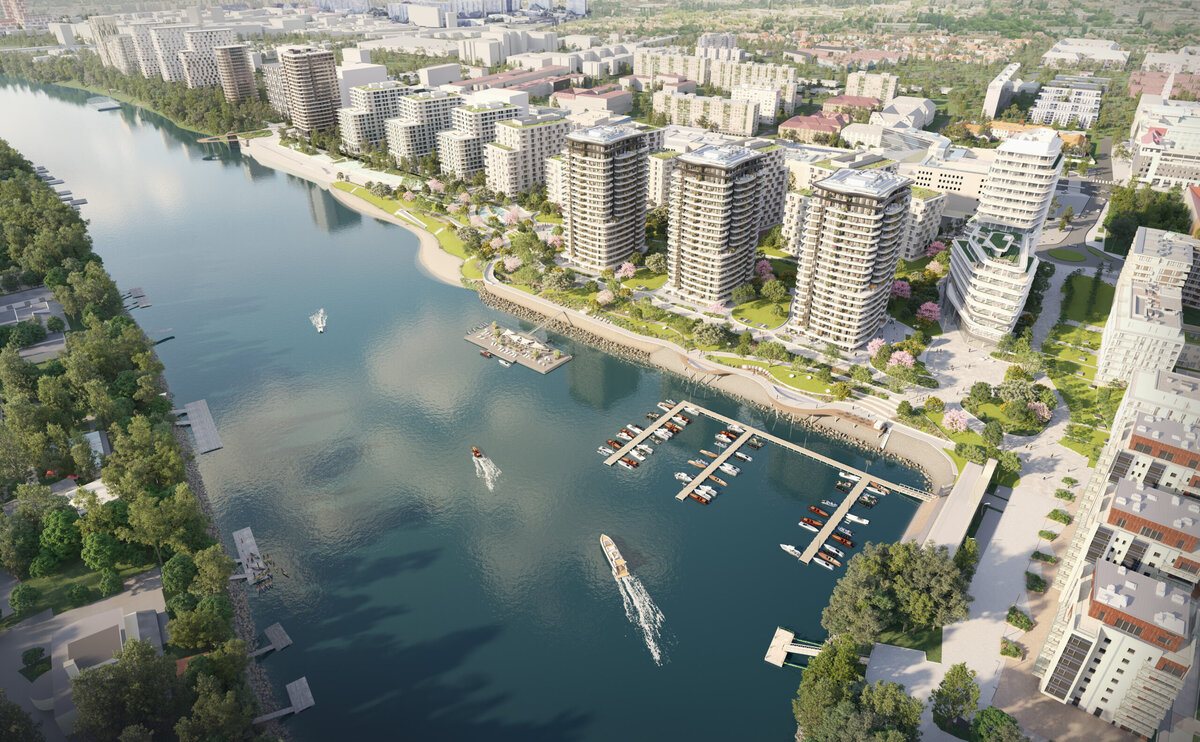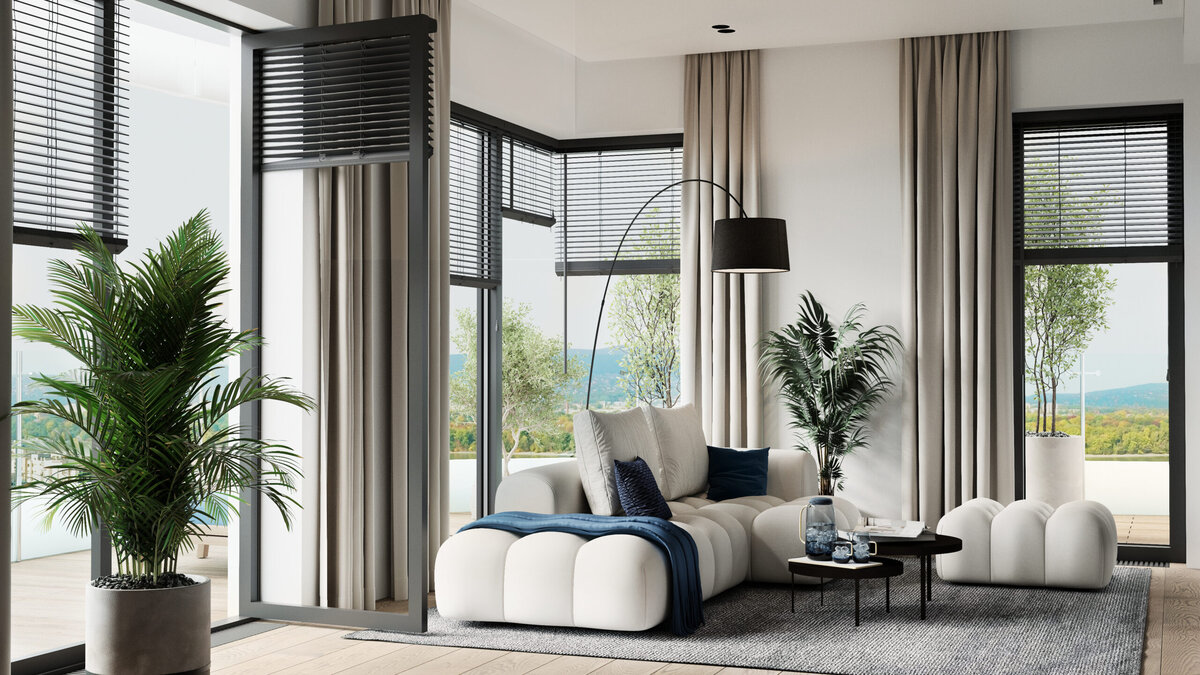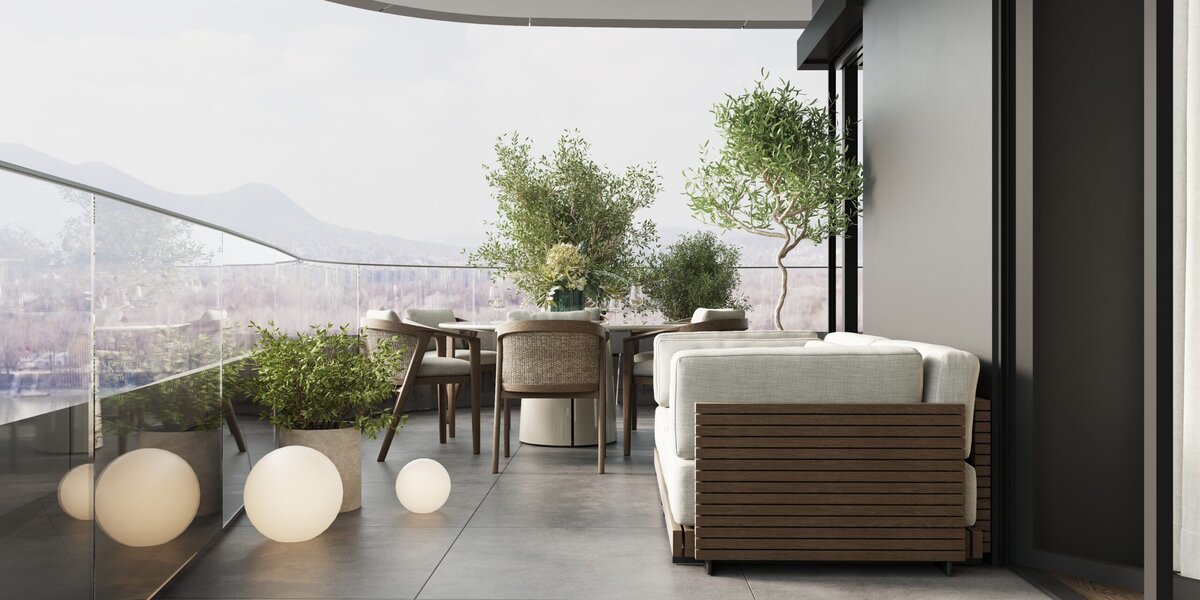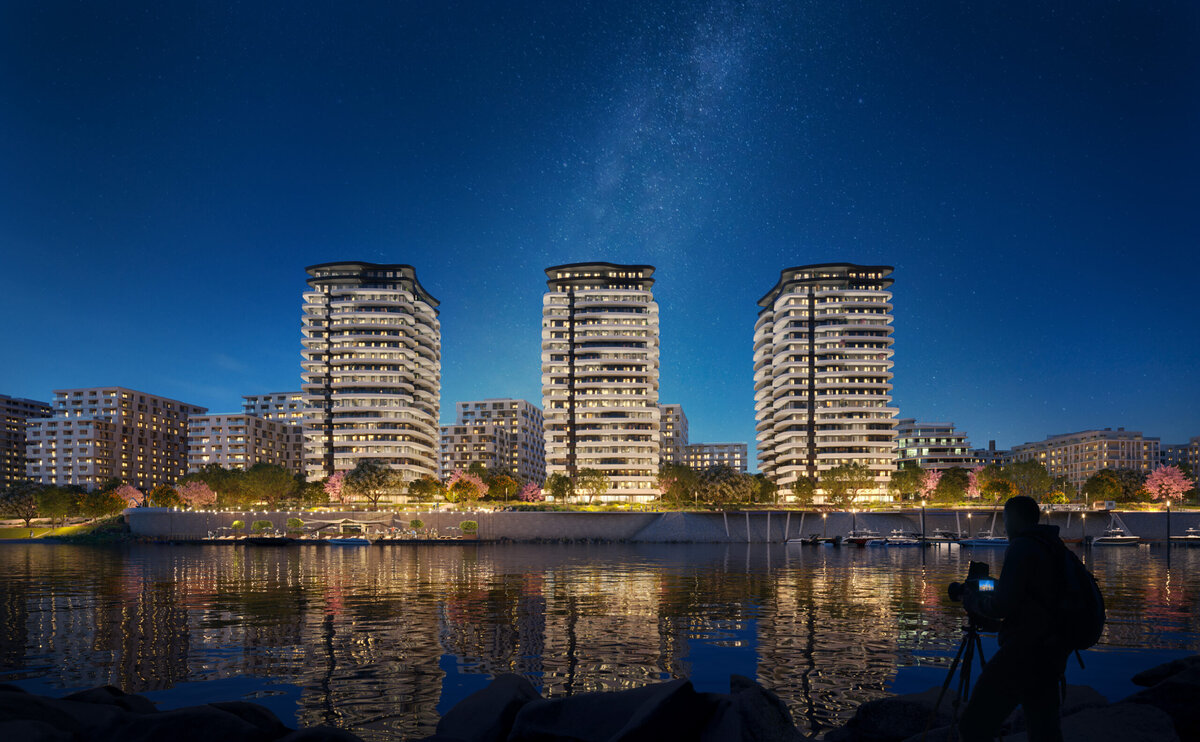
Hungary’s leading residential developer, Cordia, has commenced work at its latest large-scale urban regeneration project in Budapest, Marina City.
The member of Futureal Group, and parent company of Birmingham based Cordia UK, will revitalise a 14-hectare, long neglected industrial area, transforming the space into a waterfront public realm spanning 1.2 kilometres of the Danube riverbank on the Pest side – including a multifunctional promenade and 90,000 sqm of car-free green space.
The £850 million project will create more than 2,500 apartments in several phases over the coming years, offering breathtaking views of the Danube and Buda hills.
The residential buildings take on an unprecedented architectural style for the capital city, with luxury penthouse apartments on the top floor and spacious homes on the upper floors, thanks to the buildings’ upward broadening and chalice-like massing.
The project will be served by direct underground connections and more than 100 shops, restaurants, full-service facilities, and sports amenities. Marina City also promises outstanding energy efficiency and zero local carbon emissions through unique architectural and engineering solutions.

Gábor Futó, co-founder of Futureal Group, said: “Since its foundation, Cordia and Futureal Group have been committed to revitalising neglected urban neighbourhoods. Over the past two decades, we have gained extensive experience in implementing long-term urban regeneration projects, through the iconic Corvin Promenade and the development of the South Buda City Centre, as well as many projects in Europe.
“It is our vision to make Budapest’s greatest asset, the Danube riverbank, directly accessible to the people of the capital, creating a haven within the buzz of the city. Marina City will create unique homes where residents can wake up every day as if on holiday, rejuvenated by the wonderful riverfront views. We are looking forward to seeing our vision for a modern, smart and green city come to life.”
Marina City will extend the Pest Danube promenade by 1.2 kilometres, creating a direct, pedestrian- and cyclist-friendly connection between the river and the residents and visitors of the new neighbourhood. The waterfront public realm investment, worth £43 million, will triple the amount of green space in the area compared to its current state, thanks to its unique architectural design and landscaping, and offer numerous leisure and sporting activities.
Future residents can enjoy living in the waterside environment, without giving up the proximity of the city centre – with nearby Duna Plaza providing convenient shopping options, accessible through public transport, with nearby bus routes and stations of the M3 underground line. There will also be bicycle infrastructure and electric vehicle charging points on site.

Tibor Földi, Chairman of the Board, Cordia Group, added: “The launch of our pre-sale campaign targeting buyers of our previous developments has been extremely positive, with nearly 50 per cent of the first-phase apartments already sold. The exciting concept of Marina City, combined with Cordia’s proven track record, has generated such intense buyer interest that we will soon launch sales for phase two of the development.”
Marina City’s fundamentals, however, lie in its sustainability and outstanding energy efficiency. Cordia is using grid electricity from green sources during construction, and the buildings will be heated by air-to-water and ground-source heat pumps, eliminating the need for natural gas or district heating. Solar panels will also be installed on the roofs of the residential buildings, supplementing the grid electricity required to operate energy-producing equipment from green sources.
Each apartment in Marina City will be a smart home, including essential equipment such as heating-cooling intelligent control via a mobile application, automatic ventilation based on external and internal humidity sensing, and smart blind movement control. As a result, apartments’ heating, cooling, and hot water production energy costs are ranked A+ and A++ energy efficiency classes, corresponding to the A+2023 energy classification in Hungary.

András Kárpáti, CEO of Cordia UK, commented: “At Cordia UK, we are proud to be a member of Futureal Group, and share the same ethos – to bring underutilised urban neighbourhoods, like Great Hampton Street in Birmingham’s Jewellery Quarter, back to life. It is fantastic to see the plans for Marina City in Budapest come to life, and we take inspiration from successes in Central and Eastern Europe as we push forward with our redevelopment projects in Birmingham.
“We’re particularly excited to see Cordia leading by example in terms of the sustainability credentials of the new apartment buildings; this is an ambition we share in the UK. Our first build-to-rent project, The Lampworks, is set to be one of the most energy efficient projects in Birmingham, offering exclusively A and B+ EPC-rated dwellings.”
Cordia has enlisted the expertise of the internationally renowned architectural firm Bjarke Ingels Group in the urban rehabilitation project. Garten Studio is responsible for landscape design, TÉR-TEAM engineering office is handling flood protection system design, and building design is being undertaken by Dyer Group, Közti, Radius B+S, and Puhl and Dajka Architectural Office.
To find out more about Cordia, visit: https://cordiahomes.com/.
